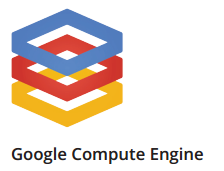Google sets up to challenge Amazon Web Services

Google's move to make its Compute Engine generally available sets up an duel with Amazon Web Services. Keep in mind that Google is playing catch up, but a recent set of moves should make things interesting.

On Wednesday, Google took the wraps off the Google Compute Engine. It also moved to support PHP, a popular programming language, with Google App Engine. At Google IO 2013, the search giant had a key track for its cloud platform. Engineers talked persistent disk, redundancy, scaling, storage and pitched developers on spinning up an instance for less than 2 cents an hour.
Also: Google Compute Engine updates: What you need to know
Presentations at Google IO included benchmarks showing better performance of Google Cloud Engine relative to "an unnamed competitor," which was obviously AWS.
The key items for Google's cloud platform go like this:
- There are sub-hour billing increments down to one minute. Google argues that this sub-hour billing will save money on cloud bursting.
- Smaller instances for low workloads.
- Routing and networking knowhow from Google.
- Persistent disk storage.
- A Cloud Datastore service that is designed to be used for big data applications.
- Google's cloud is also offering premium support and engineers pledged to improve the program, which it argues is already "quite responsive," say execs.
Clearly Google could be dangerous to AWS. Google developers were clearly interested in the cloud platform. Sessions on cloud services were either packed or overflowing.
Meanwhile, the search giant has engineering knowhow, infrastructure at scale, the economics that allow it to accelerate the cloud pricing race to the bottom and credibility with enterprises via its Google Apps services. Google can also launch features at a rapid clip that may rival AWS.
Google I/
However, the burden of cloud proof for enterprises will clearly rest with Google, which will have a few things to prove. Here are the hurdles Google will face challenging AWS:
- Support. AWS has been improving its customer support and has layered a bevy of options out for customers.
- Case studies. AWS has landed major enterprise case studies in major verticals. AWS is also handling more mission critical workloads.
- Partnerships. Google has promising cloud services, but will need to partner with the likes of SAP and Oracle to really meet enterprise demands. Google's moves so far seem geared to smaller companies.
- Features. AWS has a blistering pace when it comes to launching new services. By adding things like support for virtual private networks AWS is basically telling companies that it will continually improve. Google will have to prove the same.
- A customer service ethos. Amazon revolves around the customer whether it's e-commerce, the Kindle usage model or AWS. Google doesn't have that experience working directly with customers. Google will have to prove itself and come up with features such as the AWS Trusted Advisor.
- Longevity. AWS has been around since 2006 and enterprises are likely to dabble with Google but may be wary of a perpetual beta reputation. Google's enterprise cloud cred will take time to develop.
At Google IO, I caught up with Daniel Powers, director of global sales for the Google Cloud Platform. Powers is a cloud veteran and previously worked at both AWS and IBM. He made the following points, which go a long way to addressing those aforementioned hurdles.
- Google's enterprise team, which sells Google Apps, Chrome and Chromebooks will also work in Cloud Platform. In other words, Google already has feet on the street and may already have more sales distribution than AWS.
- The company will be looking to expand its cloud parterships with key players such as SAP, Oracle, Red Hat and Microsoft so there are a bevy of instances and use cases.
- Google's cloud team met with its customer advisory board to talk roadmaps and features needed.
- Large enterprises will be serviced by Google's large client unit, which targets Fortune 500 companies.
Make no mistake, Google can be a threat to AWS, but it has some work ahead. However, if Google positions Cloud Platform in the context of its overall enterprise portfolio the company can close gaps with AWS quickly. For now, it's worth monitoring Google's cloud efforts, which need to develop more but are likely to garner CXO interest.